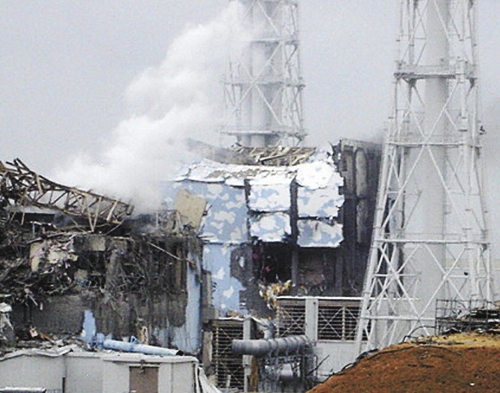Lawmakers invoke Japan catastrophe in case for Yucca Mountain
WASHINGTON -- Several members of Congress said Wednesday the nuclear disaster in Japan might justify reviving plans for nuclear waste storage at Yucca Mountain, an argument that reignited a debate over the lingering Nevada project.
A nuclear reactor accident might be rare, but the consequences are dire enough to justify removal of radioactive used fuel from the facilities and into a centralized location, argued lawmakers from Illinois and Washington, where high-level nuclear waste is stored.
The comments made at a House hearing marked the first time that anyone has tried to link the stricken Fukushima Dai-ichi nuclear plant to the Yucca Mountain repository plan, which has been terminated by the Obama administration.
The argument was dismissed by Energy Secretary Steven Chu, who said the disaster that partly involves used fuel held in cooling pools at the Japanese reactors and the longer term storage represented by Yucca Mountain "are two different things."
Others said the connection is a stretch. Bob Loux, former executive director of the Nevada Agency for Nuclear Projects, said the pools are an integral element of reactor operations, and spent fuel would need to be kept there for periods of five years or more until it is "cool" enough to be moved regardless of whether there was someplace else to take it.
"Another problem with that logic is that moving fuel out of the pool is an idea, but dry storage is as effective if not more so than the repository, especially in the short run," Loux said. "And since the NRC (Nuclear Regulatory Commission) and others have said that dry storage is safe for a couple hundred years, it is hard to make that argument."
Most nuclear utilities have built or are building above-ground storage areas where used nuclear fuel is kept in steel and concrete containers to supplement spent-fuel pools that are running out of space. The Nuclear Energy Institute said 15,000 metric tons of a total U.S. inventory of 64,000 metric tons of used fuel are stored in such dry casks.
Nuclear industry consultant Lake Barrett said much of the remaining spent fuel rods still have been kept in pools for decades, and the risk of a catastrophic fire in a damaged pool would be reduced if the inventory could be "thinned out" and relocated.
In that way, the link between the spent-fuel pool safety and a repository "is a valid argument, but whether it is persuasive is in the eyes of the beholder," said Barrett, a former senior manager on the Yucca Mountain program.
As Chu was testifying before the House Energy and Commerce Committee, Rep. John Shimkus, R-Ill., drew a connection, noting reports of heavy damage to spent-fuel storage pools at the Fukushima facility.
"There are 11 pools (at power plants) within 40 miles of downtown Chicago," Shimkus said. "Wouldn't it make sense to have one central location in the nation to store high-level nuclear waste?"
Several minutes later, Rep. Jay Inslee, D-Wash., questioned Chu about what the Obama administration plans to do about nuclear waste in light of its decision to halt Yucca Mountain.
Chu cited the work of a commission that is expected to make preliminary recommendations this summer, taking advantage of advances in knowledge since Congress first passed a nuclear waste law in 1982.
"A lot of water has passed under the bridge" since the law was enacted, Chu said.
"A lot of water may have passed under the bridge, but there may be radioactive water burning right now (in Japan)," Inslee said. "We do have pools around this country at scores of places that do present risks and not just financial risks."
The comments drew immediate reaction from Nevada lawmakers, who have opposed the Yucca Mountain plan.
Characterizing the remarks of repository supporters as opportunistic, Rep. Shelley Berkley, D-Nev., said the Nevada plan carries unacceptable risks, including the location of Yucca Mountain in an earthquake zone.
"At a time when the world is watching in horror as Japan's nuclear tragedy unfolds before our eyes, can anyone actually argue that it is a good idea to unleash decades of nuclear waste shipments on communities across the United States?" Berkley said.
The office of Sen. Harry Reid, D-Nev., prepared a rebuttal sheet.
"The lesson to be drawn from the tragedy in Japan should not be to move forward with trucking the most dangerous material known to man through Nevada's neighborhoods to be stored on an earthquake fault line only 90 miles from the Strip," Reid said.
Contact Stephens Washington Bureau Chief Steve Tetreault at stetreault@stephensmedia.com or 202-783-1760.

















